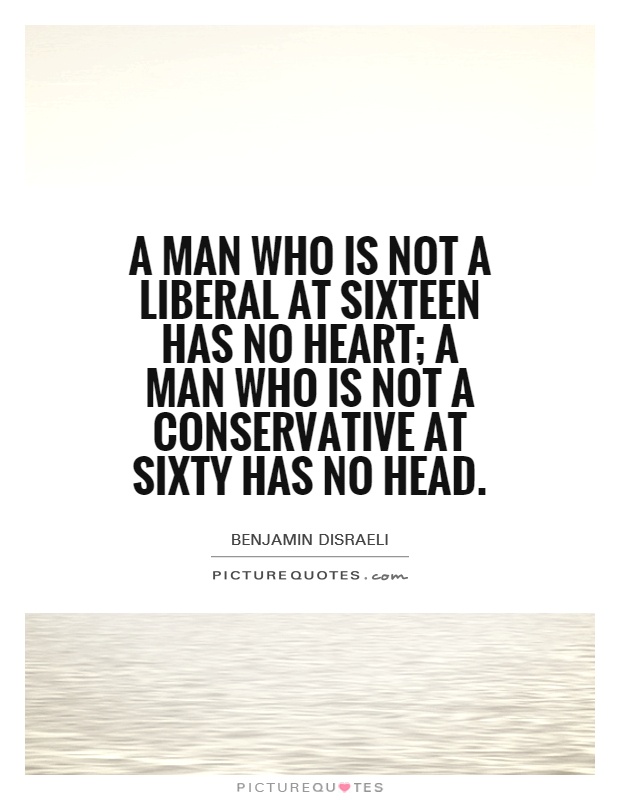A man who is not a Liberal at sixteen has no heart; a man who is not a Conservative at sixty has no head

A man who is not a Liberal at sixteen has no heart; a man who is not a Conservative at sixty has no head
The famous quote, “A man who is not a Liberal at sixteen has no heart; a man who is not a Conservative at sixty has no head,” is often attributed to Benjamin Disraeli, a prominent British statesman and novelist who served as Prime Minister of the United Kingdom in the 19th century. Disraeli was known for his wit, charm, and political acumen, and this quote reflects his belief in the evolution of political beliefs over time.At the age of sixteen, many individuals are idealistic and passionate about social justice and equality. They may be drawn to liberal ideologies that prioritize progress, reform, and the rights of the individual. This is the age when one is most likely to be influenced by emotions and empathy for others, leading them to support causes that aim to create a more just and equitable society.
However, as people grow older and gain more life experience, they often become more pragmatic and conservative in their views. They may prioritize stability, tradition, and personal responsibility, leading them to support conservative ideologies that emphasize the importance of order, hierarchy, and individual initiative. This shift in perspective is often attributed to a greater understanding of the complexities of the world and a recognition of the limitations of idealistic solutions.
Benjamin Disraeli himself exemplified this evolution of political beliefs. He began his political career as a Radical, advocating for social and political reform to address the inequalities of Victorian society. However, as he gained more experience and rose to prominence in the Conservative Party, he became a staunch defender of traditional values and institutions. As Prime Minister, Disraeli implemented a series of conservative policies aimed at strengthening the British Empire and preserving social order.












 Friendship Quotes
Friendship Quotes Love Quotes
Love Quotes Life Quotes
Life Quotes Funny Quotes
Funny Quotes Motivational Quotes
Motivational Quotes Inspirational Quotes
Inspirational Quotes